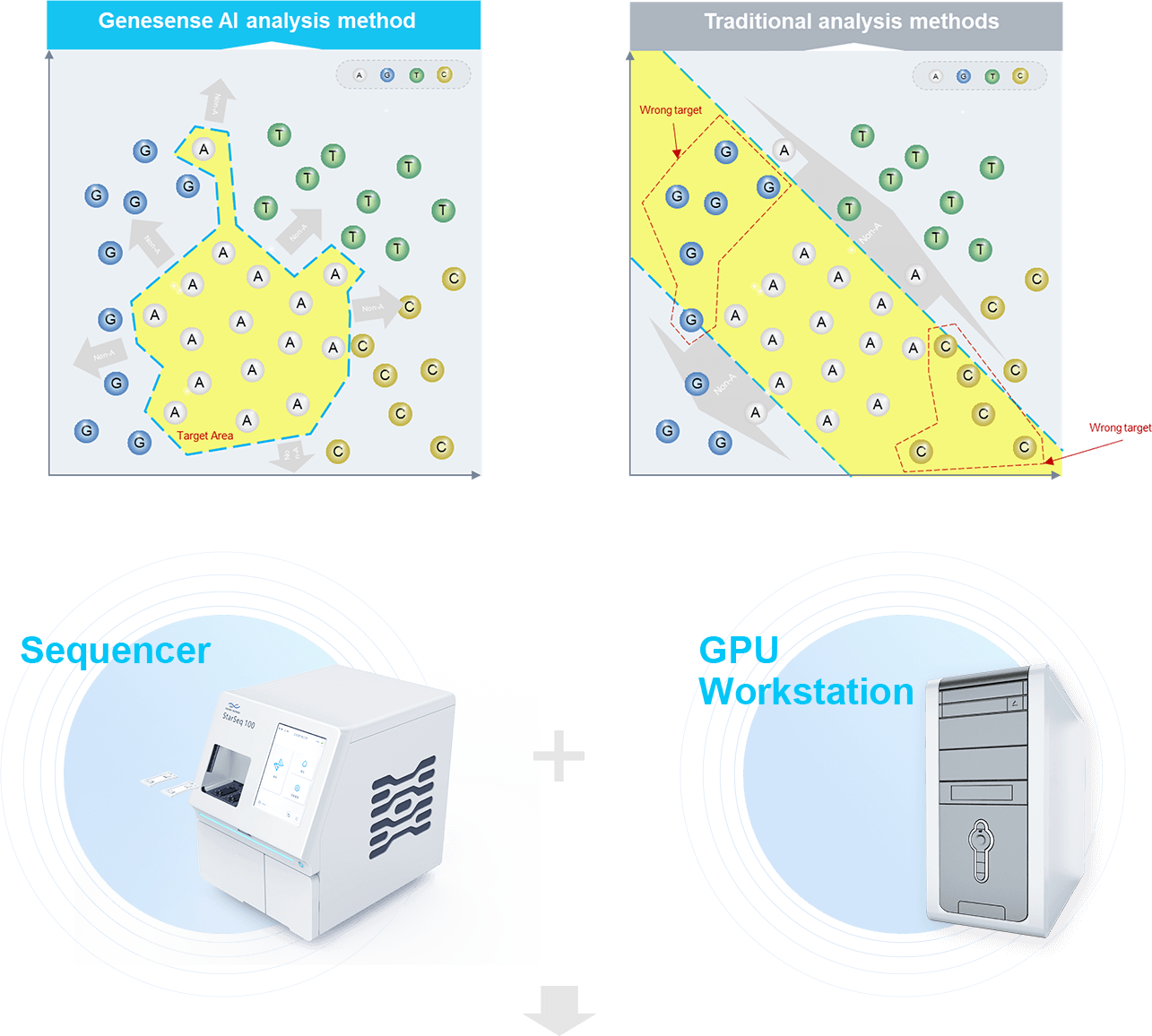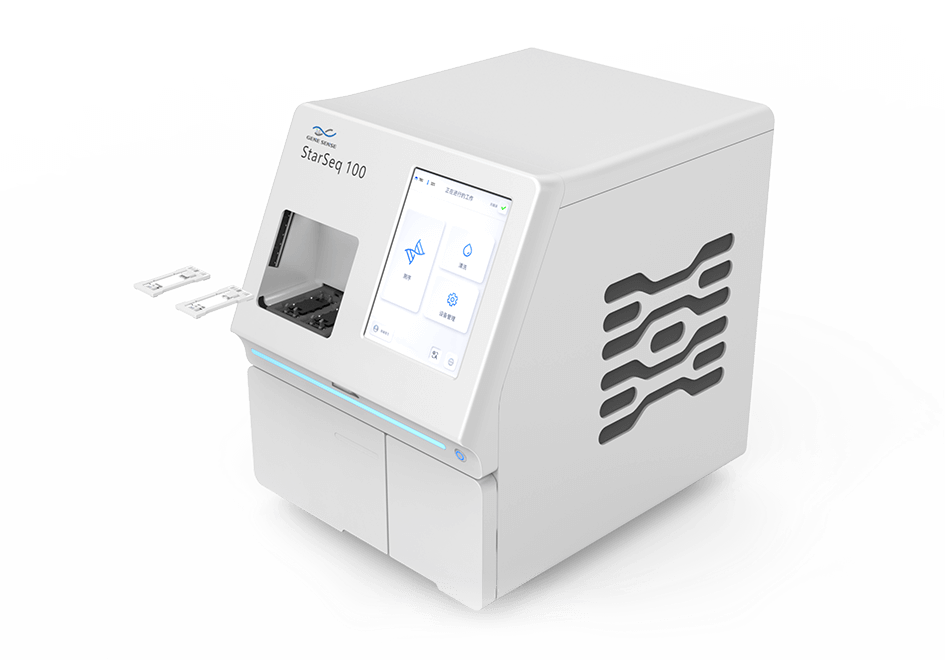Early screening based on DNA sequencing
With the aid of precise sequencing technology and AI-powered data analytics, low-frequency mutations in blood, tissue or other biological samples can be detected.
Through comprehensive detection of multiple genetic variations and methylation statuses, the patient's risk of tumor development can be systematically assessed and accurate screening results can be provided in the early stages of the disease, offering robust support for clinicians to formulate prevention or treatment strategies.


















